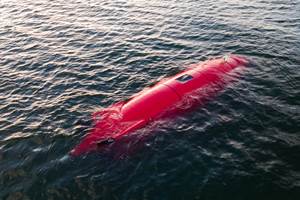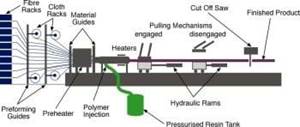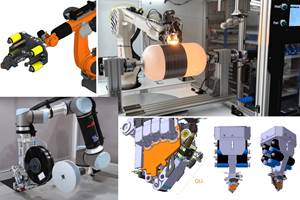Hardener accelerator line designed for epoxy resin optimization
CAMX 2024: Alzchem highlights the Dyhard series of latent curing agents, providing the balance of mechanical and thermal properties formulators need for thermoset epoxy resin systems.
Share
Alzchem (Trostberg, Germany) is a manufacturer of specialty chemicals. Among its products is the Dyhard product line of latent curatives for epoxies that, when mixed with epoxy resin, yield compounds with long working life and the ability to cure quickly at elevated temperatures to form parts with optimal mechanical and thermal properties.
Alzchem’s flagship product line is the Dyhard 100 series dicyandiamide. Dicyandiamides are preferred for their long open time in a prepreg system to impregnate and wet out glass or carbon fiber fabrics. The high cross-link density of diyandiamide-cured systems yields final products with high Tg and high strength. Dyhard 100 products come in a variety of particle sizes, the most popular of which is Dyhard 100S with a d98 particle size less than 10 µm.
Alzchem also offers a broad range of urone and imidazole accelerators for this dicyandiamide series. Selection of the right accelerator package enables the formulator to compound an epoxy with the process and performance qualities required for specific aerospace or automotive applications; Dyhard accelerators are said to give the formulator different ways of balancing the reactivity of the epoxy compound with the open time that’s needed.
The Dyhard product line also includes Dyhard Fluids, a line of liquid latent epoxy curatives. These products are designed with filament winding applications in mind. The days-long pot life of impregnation baths formulated with Dyhard Fluids can reduce downtime, cleanouts and costs, when winding high-strength, high-Tg products. Dyhard Fluids have also found a home in prepreg applications where cosmetic appeal is a desirable attribute.
A new product now only available from Alzchem is the Dyhard LA1 latency additive. This class of products is reported to more than triple the pot life of an accelerated Dyhard 100/epoxy formulation. Alzchem says this can now be done without sacrificing the physical properties or the reactivity of the system. Fast-curing prepregs can now be manufactured without the need for refrigerated transport to the molder.
Related Content
-
Large-format 3D printing enables toolless, rapid production for AUVs
Dive Technologies started by 3D printing prototypes of its composite autonomous underwater vehicles, but AM became the solution for customizable, toolless production.
-
Plant tour: Joby Aviation, Marina, Calif., U.S.
As the advanced air mobility market begins to take shape, market leader Joby Aviation works to industrialize composites manufacturing for its first-generation, composites-intensive, all-electric air taxi.
-
Pultrusion: The basics
A primer describing what pultrusion is, its advantages and disadvantages, and typical applications.
Related Content
Large-format 3D printing enables toolless, rapid production for AUVs
Dive Technologies started by 3D printing prototypes of its composite autonomous underwater vehicles, but AM became the solution for customizable, toolless production.
Read MorePlant tour: Joby Aviation, Marina, Calif., U.S.
As the advanced air mobility market begins to take shape, market leader Joby Aviation works to industrialize composites manufacturing for its first-generation, composites-intensive, all-electric air taxi.
Read MorePultrusion: The basics
A primer describing what pultrusion is, its advantages and disadvantages, and typical applications.
Read MoreThe next evolution in AFP
Automated fiber placement develops into more compact, flexible, modular and digitized systems with multi-material and process capabilities.
Read MoreRead Next
Plant tour: Daher Shap’in TechCenter and composites production plant, Saint-Aignan-de-Grandlieu, France
Co-located R&D and production advance OOA thermosets, thermoplastics, welding, recycling and digital technologies for faster processing and certification of lighter, more sustainable composites.
Read MoreAll-recycled, needle-punched nonwoven CFRP slashes carbon footprint of Formula 2 seat
Dallara and Tenowo collaborate to produce a race-ready Formula 2 seat using recycled carbon fiber, reducing CO2 emissions by 97.5% compared to virgin materials.
Read MoreDeveloping bonded composite repair for ships, offshore units
Bureau Veritas and industry partners issue guidelines and pave the way for certification via StrengthBond Offshore project.
Read More













